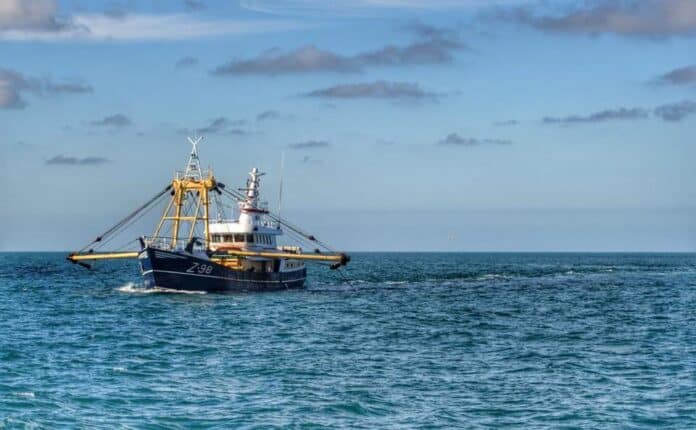Six months ago, I was with Laurent Merlin as we entered British coastal waters in the middle of the night.
As he guided his boat through heavy waves, circling around the lobster pots, he spoke of his nervousness about the uncertainty of Brexit.
Now, nervousness has turned to anxiety, blended with anger. A fortnight before the end of the year and Laurent, along with fishermen in the UK and across Europe, have no idea what regulations await them on 1 January.
“Everyone is really stressed,” he says.
“Everyone is impatient to find out what’s happening, because some of my colleagues have got a lot of gear out in those waters.
“Personally, I have €40,000 worth of lobster cages out in UK waters at the moment.
“We don’t know whether to leave them there or to bring them back. We’ve been told to take them out of UK waters before 1 January, and if not the Royal Navy will intervene. If Brexit really does happen, then we are dead.”
And now, where once his anger was pointedly controlled, there is the sense of brewing fury.
“We just won’t accept it. For now, we haven’t said much, because I think we still had hope, but if we end up with a no deal, then we will all take action.
“We can’t just stay here and accept it. I absolutely believe that of the 30 boats operating here, in two years there will only be 10 left. That’s for sure.”
No single industry has had such prominence within Brexit negotiations as fishing.
In economic terms, it is a minnow – worth much less than 0.1% of the UK’s GDP.
But it has taken on political heft as a symbol of sovereignty, national pride and the idea of taking back control.
The complication is that there are EU countries who feel just as strongly about defending their fishermen, however slight their economic impact.
France, Denmark, Sweden, Belgium, Spain, Ireland, Germany and the Netherlands all send fishing boats into British coastal waters.
The fish and seafood they bring back are eaten across the continent. And, yes, here too there is an intangible sense that fishing should be defended.
While the EU’s chief negotiator Michel Barnier was addressing the European Parliament in Brussels, fishmonger France Grimonprez was serving a steady stream of customers at her fishmongers, a couple of miles away.
“Without a deal we don’t know where we are heading but to achieve a deal, like in any business, everyone will need to find their fair price,” she told me.
“The laws aren’t very clear. For example with scallops. French fishermen are really controlled when it comes to fishing, on the size, how many hours they can work and so on.
“But these same rules don’t apply to British fishermen. So already this creates problems because the laws aren’t the same.
“The problem is that in the Channel, there is no wall to divide the water.
“Maybe I’m naive but I hope that ‘no-deal’ doesn’t happen. There has to be a free exchange within the agreements that are reached, otherwise it’s a big step back.”
Across Europe, the fishing industry waits to see what happens next.
Livelihoods are at stake, nerves are fraying and tension is running high.
It is not only in the UK that the plight of fishermen has become a political focus.
PLEASE SUPPORT US FOR JUST £2 A MONTH







